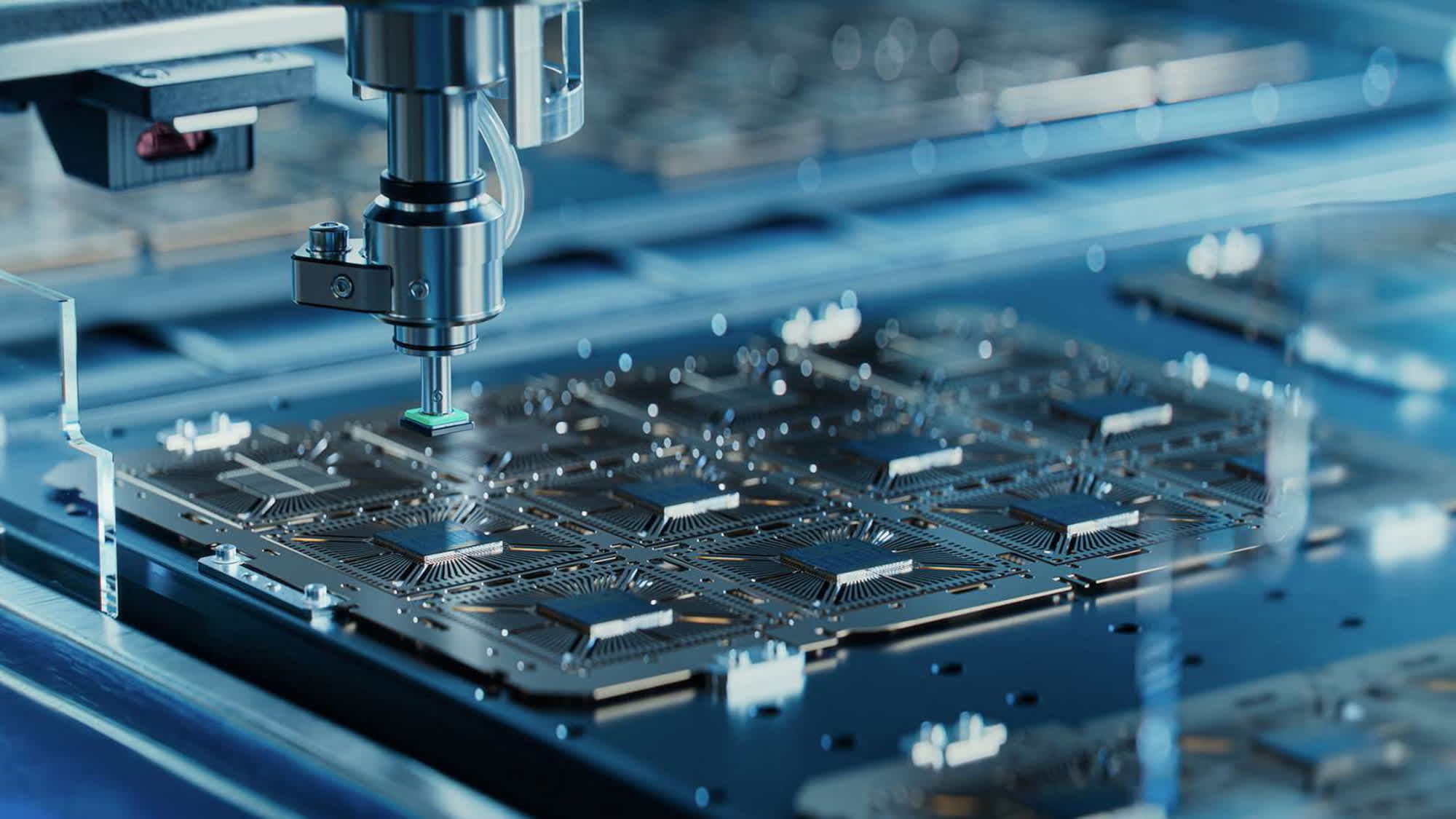Rumor mill: The appeal of AI systems for business prospects isn’t slowing down anytime soon, and tech companies are in need of a growing number of GPUs and dedicated chips to properly process those ML algorithms. Nvidia is sourcing its AI chips from TSMC, but the Taiwanese foundry could be unable to meet the US company’s manufacturing expectations.
Nvidia could choose Intel Foundry Services as a new partner for GPU manufacturing in the next few months. According to rumors from unnamed industry sources, Nvidia is seeking additional production capacity of 5,000 wafers per month. This would translate to 300,000 H100 chips if the contract is solely for those enterprise AI accelerators.
TSMC’s foundry services seem to be struggling to keep up with Nvidia’s business growth. The GPU company needs a significant increase in production capacity of the chip-on-wafer-on-substrate (CoWoS) process, an interposer-based packaging technology that provides high integration density between different chip elements.
Advanced packaging processes for chip manufacturing are expected to be in high demand in the next few years, and CoWoS alone is projected to increase by 130 percent by the second half of 2024. TSMC is working to boost its CoWoS capacity to 20,000 wafers per month by the end of 2024, and Nvidia is likely to secure a majority of this increased capacity for its AI and GPU chips.

Intel Foundry Services doesn’t offer the same CoWoS packaging solution used by TSMC, although the company has a similar interposer-based advanced packaging process called Foveros. Nvidia will need to test and validate Intel’s technology through a new qualification process, and the final product is likely to have slightly different characteristics compared to GPUs made by TSMC.
Nvidia could also choose to utilize Intel’s foundry service to manufacture a select number of products, outsourcing only a part of its current portfolio. The unconfirmed rumors suggest that Nvidia will start using Intel foundry plants in the second quarter of 2024.
Despite seeking Intel’s assistance, analysts predict that Nvidia will continue to rely on TSMC as its main manufacturing partner for years to come. Intel’s manufacturing capabilities for advanced packaging solutions include plants located in Oregon and New Mexico, and the company is working to rapidly expand its foundry business to attract more customers.

